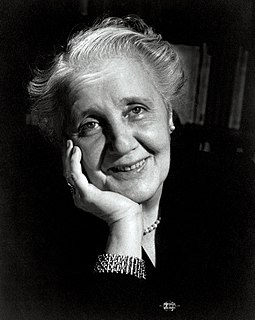A Quote by Maria Montessori
The development of the child during the first three years after birth is unequaled in intensity and importance by any period that precedes or follows in the whole life of the child.
Quote Topics
Related Quotes
When you practice Dynamic Meditation for the first time this will be difficult, because we have suppressed the body so much that a suppressed pattern of life has become natural to us. It is not natural! Look at a child: he plays with his body in quite a different way. If he is crying, he is crying intensely. The cry of a child is a beautiful thing to hear, but the cry of an adult is ugly. Even in anger a child is beautiful; he has a total intensity. But when an adult is angry he is ugly; he is not total. And any type of intensity is beautiful.
Each era invents its own child. Over the past 500 years, conceptions of the child changed gradually from an ill-formed adult who must be subjugated to society's goals to a precious being who must be protected from unreasonable social demands. Childhood has come to be seen as a special period of life, rather than as a temporary state of no lasting importance for adulthood.
In the first three years of life, the foundations of physical and also of psychic health are laid. In these years, the child not only increases in size but passes through great transformations. This is the age in which language and movement develop. The child must be safeguarded in order that these activities may develop freely.
I do not believe that just because you're opposed to abortion, that that makes you pro-life. In fact, I think in many cases, your morality is deeply lacking if all you want is a child born but not a child fed, not a child educated, not a child housed. And why would I think that you don't? Because you don't want any tax money to go there. That's not pro-life. That's pro-birth. We need a much broader conversation on what the morality of pro-life is.
She feels so contented in giving birth to a child, in helping the child to grow; and that's why she does not need any other kind of creativity. Her creative urge is fulfilled. But man is in trouble: he cannot give birth to a child, he cannot have the child in his womb. He has to find a substitute, otherwise he will always feel inferior to the woman. And deep down he does feel that he is inferior. Because of that feeling of inferiority man tries to create paintings, statues, dramas, he writes poetry, novels, explores the whole scientific world of creativity.
Although psychology and pedagogy have always maintained the belief that a child is a happy being without any conflicts, and have assumed that the sufferings of adults are the results of the burdens and hardships of reality, it must be asserted that just the opposite is true. What we learn about the child and the adult through psychoanalysis shows that all the sufferings of later life are for the most part repetitions of these earlier ones, and that every child in the first years of life goes through and immeasurable degree of suffering.
In certain circumstances where he experiments in new types of conduct by cooperating with his equals, the child is already an adult. There is an adult in every child and a child in every adult. ... There exist in the child certain attitudes and beliefs which intellectual development will more and more tend to eliminate: there are others which will acquire more and more importance. The later are not derived from the former but are partly antagonistic to them.

































